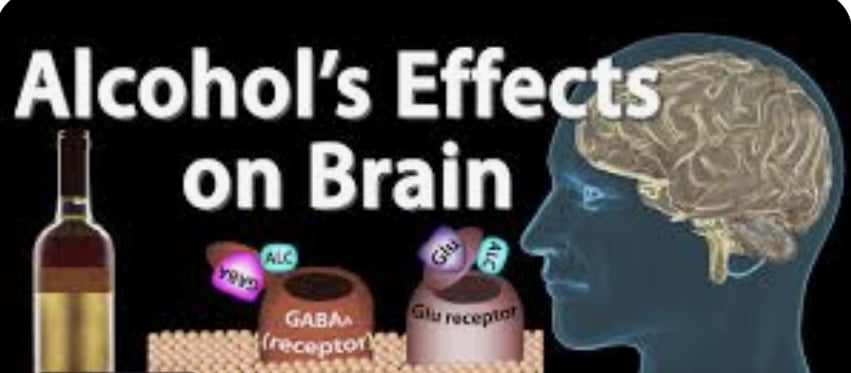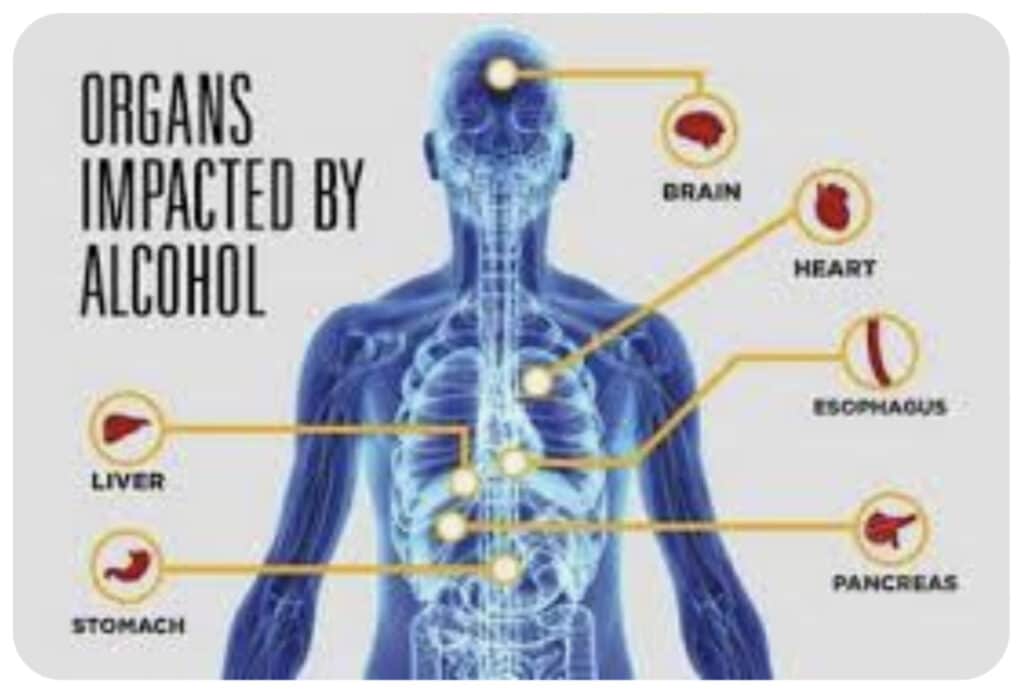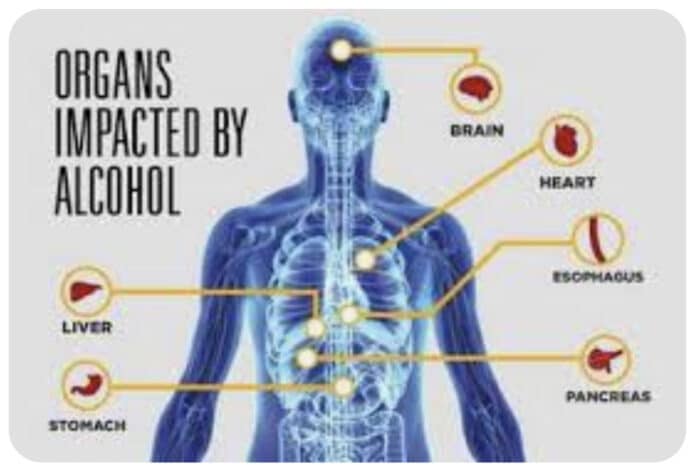The consequences of indulging will become more apparent when the holiday party season begins. Here are some depressing statistics about hangovers and strategies you may use to prevent them.
According to Emily Palmer, a researcher at Imperial College London who focuses on hangovers, alcohol is a “dirty substance.” The brain’s many systems are affected.
Although scientists are unsure of exactly what occurs in our bodies during a hangover, they do know that a number of biochemical and neurochemical changes are to blame. Palmer claims that it affects practically every organ, not simply the liver or the brain.
Many of us will be partaking in one, two, or three drinks to celebrate Christmas this year.
So, is it feasible to survive the next morning?
The precarious incline, A neurotransmitter known as gamma-aminobutyric acid, or Gaba, is released in the brain after your first drink, according to Rayyan Zafar, a neuropsychopharmacologist at Imperial College London and researcher with the nonprofit Drug Science. He adds, “Gaba slows the brain. “It operates on receptors in the brain, particularly areas related to thought and motor control. “Simply put, the brain switches off. That is why alcohol is said to as a depressant.

From Imperial College London, Rayyan Zafa.
The central nervous system’s ability for nerve cells to send and receive chemical signals is decreased by gaba. According to Zafar, this means that for the first one to three sips, you feel comfortable when Gaba is released.
Zafar explains, “You feel wonderful, you feel at ease, and you want more. However, as you keep drinking, alcohol attaches to brain glutamate receptors that are crucial for memory consolidation. According to Zafar, this decreased electrical activity “basically prevents the creation of memories.”
Your cerebellum, which is in charge of movement, motor coordination, and balance, receives the alcohol as it travels from your brain, which governs behaviour, to these areas.
The medulla, located in the centre of the brain, is then affected by alcohol consumption. It regulates autonomic functions including blood pressure, respiration, and pulse. Zafar claims, “The brain just shuts out.” Because it depresses the entire central nervous system, alcohol is referred to be a depressant rather than because it makes you feel depressed.
Can I drink non-alcoholic beer and become drunk?
Most likely not,” says Zafar. Say a pint of beer has 5% alcohol on average; to get the same impact, you would need 10 low-alcohol beers with 0.5% alcohol. Your body wouldn’t be able to retain so much fluids, in my opinion.

All those Christmas gatherings might have unpleasant side effects
The after effects
Around one unit of alcohol is excreted by the liver per hour, after which the hangover sets in. According to Zafar, the ability to vomit has evolved as a means of removing unwanted chemicals from the body. When your head is hanging over the toilet bowl, it could provide a tiny solace.
Alcohol dehydrogenase is an enzyme that breaks down alcohol (ADH). Acetaldehyde, a toxin and carcinogen, is created while ADH breaks down the ethanol. Hangover symptoms are often at their worst when blood alcohol concentration approaches zero because at that time, all of the alcohol has been converted to acetaldehyde, which alters DNA activity, according to Zafar.
Mitochondrial DNA is harmed by alcohol. Our cells’ mitochondria, which provide energy, may become poisonous to the brain with only a little bit of damage. Palmer adds, “We suspect that harm may accumulate if you frequently consume enough alcohol to give you a hangover, leading to cognitive decline and early memory loss.”
Additionally, alcohol reduces the hormone vasopressin’s secretion, which instructs the kidneys to retain fluid, leading to an increase in urine. You may experience thirst, fatigue, and fatigue due to the resultant dehydration.
Zafar continues, “We think hydration is really crucial. We don’t only mean water when we say “hydration. We also refer to potassium, sodium, and chloride. Your immune system is triggered when your body is injured. It releases inflammatory cells that fight bacteria or repair injured tissue.

According to Zafar, drinking alcohol causes the gut to indicate that it is poisoned. “In reaction, your immune system intensifies in an effort to counteract the toxins. There may be too much inflammation as a result. The body has become self-referential. The inflammatory reaction can lead to headaches, nausea, vomiting, disorientation, mood swings, cognitive decline, and problems with learning and memory. Chronic inflammation, which is connected to diabetes, cancer, and heart disease, can also be brought on by excessive drinking on a regular basis.
Are hangovers worse as you age?
Although we often identify the term metabolism with food digestion, it really refers to all of the body’s chemical reactions. It takes longer to heal as you age since your metabolism slows down, claims Zafar.
Palmer says it could also be related to changing drink tastes and a decreased tolerance brought on by less heavy drinking as we get older. He explains, “When we were younger, we might have had vodka tonics.” We could sip wine or whiskey afterwards.
Congeners are a result of fermentation and are present in darker beverages. They are intricate organic compounds, such as acetone, acetaldehyde, fusel oil, tannins, and furfural, which have poisonous consequences.
Whiskey has been shown to have 37 times as many congeners as vodka, and studies have shown that congener-rich beverages worsen hangover symptoms.
How can I avoid being hung over?
Of course, drink less. However, there are several strategies that might help you prevent the hangover if you do decide to have a few drinks.
Take it slow.
Add ice, soda, lemonade, or other mixers to booze to dilute it. You’ll consume alcohol more gradually, giving your body more time to absorb it and lowering the peak blood alcohol level.
Select your beverages.
Red wine and whiskey should be avoided since they contain more congeners than clear beverages like vodka or gin.
Take eggs. According to Zafar, the amino acid cysteine found in eggs decreases the metabolism of alcohol.
Can a hangover be cured?
Regrettably, no. Researchers from King’s College London claim that there isn’t any solid proof that any alleged hangover remedies actually work.
Their latest research examined many purported hangover remedies, including clove extract, red ginseng, Korean pear juice, and others, and came to the conclusion that none of them are supported by sufficient high-quality data. Ibuprofen, on the other hand, might lessen inflammation, and drinking isotonic beverages, like sports drinks, can help you rehydrate by replacing lost fluid and ions and may provide some comfort.
Do some individuals never have a hangover?
Alcohol dehydrogenase can be produced fast by some persons whereas it can’t be produced as quickly by others. Your genes will determine everything.
According to Zafar, “those who can quickly manage this enzyme and break down alcohol… definitely don’t experience hangovers.” However, because they may drink more without experiencing any negative consequences, they are more prone to become alcohol dependent.
Knowing that the next step would be uncomfortable, restraint could be easier. Palmer adds that rather of applying a bandage, “we want to attempt to avoid the harm we’re creating to our bodies.”
Join us in helping to bring reality and decency back by SUBSCRIBING to our Youtube channel:
https://www.youtube.com/channel/UCQ1Ll1ylCg8U19AhNl-NoTg
and SUPPORTING US where you can: Award Winning Independent Citizen Media Needs Your Help. PLEASE SUPPORT US FOR JUST £2 A MONTH







